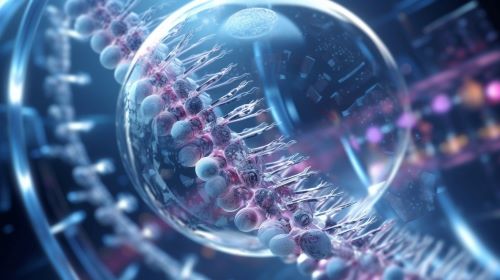The rapid advancements in genetic engineering have catapulted humanity into a realm where the boundaries between science fiction and reality blur.
The once distant concept of manipulating genes to enhance human traits now stands tantalizingly close to becoming a tangible reality. As we inch closer to wielding this unprecedented power, it is imperative to engage in a profound debate on the ethical implications that such manipulation entails. Are we tampering with nature’s delicate equilibrium, or are we merely guiding evolution’s course? In this blog post, we delve into the moral labyrinth surrounding genetic engineering and confront the complex ethical questions that demand our attention.
The Promise and Peril
Genetic engineering, often hailed as a beacon of hope for eradicating hereditary diseases and improving human lives, holds the potential to reshape the very fabric of our existence. The idea of enhancing intelligence, strength, and even longevity through genetic manipulation offers a tantalizing glimpse into a future where our biological limitations are mere stepping stones to greater heights. However, this promise is accompanied by an array of ethical pitfalls, invoking concerns about unintended consequences, social inequalities, and the erosion of our shared human experience.
The Quest for Perfection
One of the central ethical dilemmas lies in the pursuit of human perfection. As we engineer traits that surpass current human capabilities, we risk marginalizing those who do not undergo genetic enhancements. Are we inadvertently creating a new caste system where the genetically modified elite reign supreme, while the unaltered majority struggle to keep pace? Moreover, the very definition of “perfection” is subjective, often influenced by societal norms and biases. The danger of reducing the richness of human diversity to a narrow set of predetermined traits should not be underestimated.
Unintended Consequences and the Pandora’s Box
The complexities of genetics extend far beyond our current understanding. The butterfly effect of modifying one gene could cascade into unforeseen repercussions throughout the genome. The delicate interplay between genes and the environment, for instance, could yield unintended consequences that are impossible to predict. Furthermore, the temptation to engage in germline editing – altering genes that are passed down to future generations – raises the specter of creating irreversible changes that echo through time.
Playing God or Harnessing Evolution?
At the heart of the ethical debate lies the question of whether we are tampering with nature’s balance or simply accelerating the course of evolution. Critics argue that genetic engineering transgresses our role as stewards of the natural world, thrusting us into the role of puppeteers who manipulate the strings of life itself. Proponents counter that humans have always been agents of change, from agricultural advancements to medical breakthroughs, and genetic engineering is merely an extension of this natural inclination to shape our environment.
The Ethical Dilemma
The ethics of genetic engineering are a conundrum that defies easy resolution. As we stand on the precipice of a genetic revolution, we must navigate the moral intricacies that lie before us. Our decisions today will reverberate through generations, shaping the course of humanity’s evolution. Do we embrace the power to enhance human traits, risking unintended consequences and societal division? Or do we exercise caution, respecting the intricate web of life and the sanctity of our shared human experience? The path forward is uncertain, but the questions that this ethical dilemma raises are undeniably thought-provoking:
- How can we strike a balance between the potential benefits of genetic engineering and the ethical concerns it raises?
- What safeguards should be put in place to prevent the misuse of genetic manipulation for discriminatory or harmful purposes?
- Is there a way to ensure equal access to genetic enhancements, or will they perpetuate existing social inequalities?
- How do we define “natural” in a world where technological advancements continually reshape our understanding of the term?
- Should we allow germline editing, even if it means making irreversible changes to the genetic makeup of future generations?
Final Thoughts
As we grapple with these questions, we must approach the ethics of genetic engineering with humility, responsibility, and a profound respect for the delicate tapestry of life that surrounds us. The choices we make today will shape the course of humanity’s genetic destiny.
#GeneticEngineeringEthics, #HumanGeneticManipulation, #MoralImplications, #EnhancingHumanTraits, #EthicalDilemmas, #GermlineEditing, #GeneticRevolution, #BioethicsDebate, #GeneticEnhancements, #EthicalGeneticManipulation

























